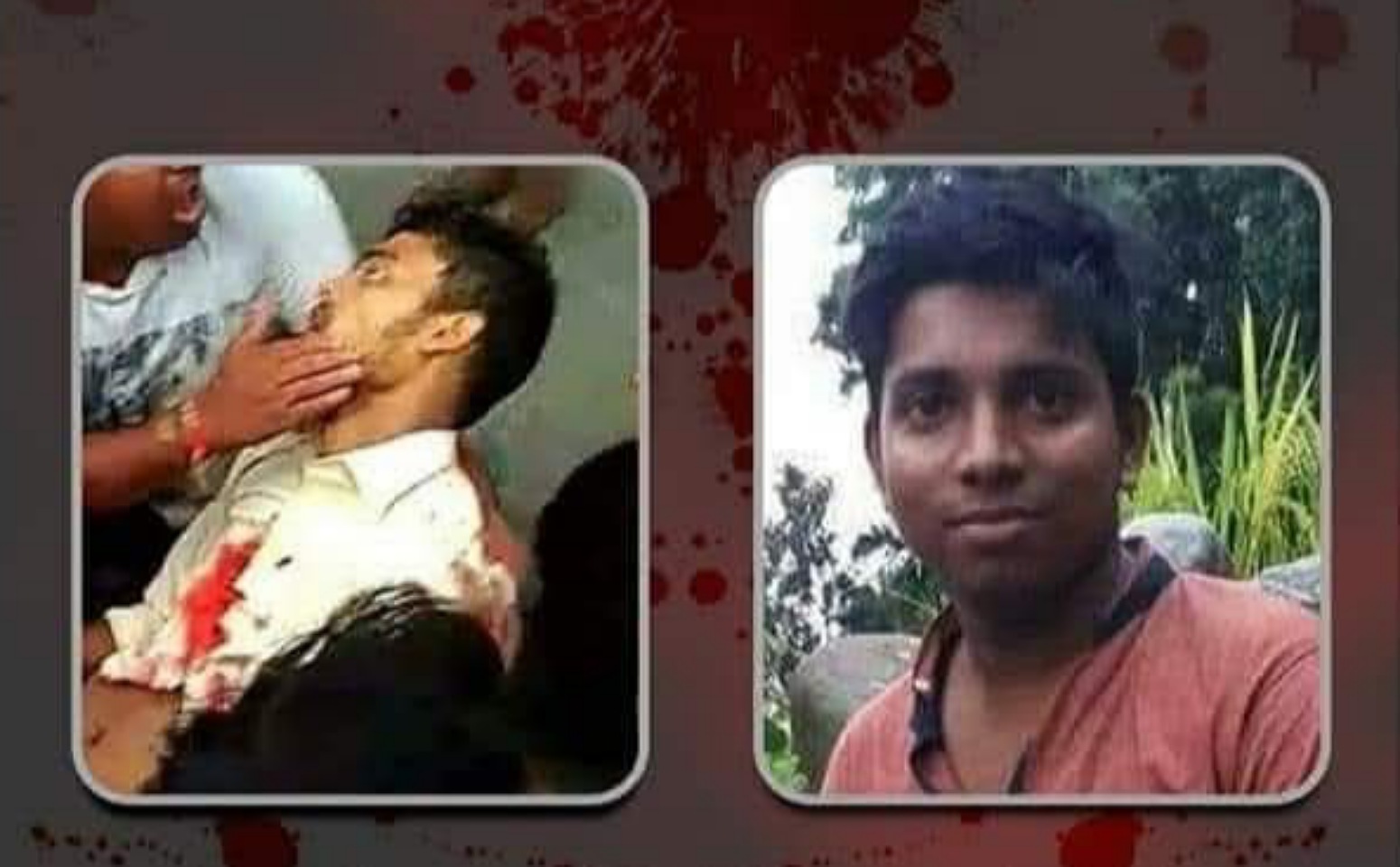
20th September 2018 is a profoundly memorable day in the history of Bengalis. On this tragic day, Rajesh Sarkar and Tapas Barman sacrificed their lives to resist the sinister designs of Ghazawat al-Hind—the expansionist schemes of the Arab imperialism in the Indian subcontinent—which aimed to snatch away the linguistic rights of Bengalis in West Bengal and impose the alien Urdu language upon them. These two heroic youths from Daribhit, Islampur of North Dinajpur district, became martyrs, giving their lives for the rightful demand of Bengali language teachers.
In West Bengal, our very own sons, Rajesh and Tapas of Darbhit, were shot dead in broad daylight in 2018 simply because they demanded Bengali-medium teachers. Astonishingly, this brutal incident was ignored by the so-called intellectual society of West Bengal. While Bangladesh commemorates International Mother Language Day with pride, in West Bengal, Bengali children had to face bullets for asserting their mother tongue. The silence of language lovers in this context marks a deeply shameful chapter in West Bengal’s history.
Let us revisit the sequence of events of that fateful day.
20th September 2018 was Sports Day at Darbhit School. The BDO had officially declared that no Urdu teacher would be appointed. Yet, the school management committee, led by Trinamool leaders Nisha Chandra Ganesh and Subodh Majumdar, along with science teacher Nurul Huda and headmaster Abhijit Kundu, persistently pushed for the appointment of an Urdu teacher despite there being no Urdu students at the school. Locally, the conspiracy was orchestrated with special zeal by village police officer Mohammad Reza. The entire plan, including police complicity, bears responsibility for the ensuing bloodshed. From Kolkata to Asansol, from Islampur to Iqbalpur, posters and banners reveal the proponents of a “mini-Pakistan,” for whom Urdu has become the dominant medium, while Bengali is deliberately marginalized.
The conspirators aimed to deprive the people of Darbhit of Bengali-medium teachers. By noon, tensions escalated sharply. Students, parents, and villagers gathered on the school grounds, vocally opposing the appointment of an Urdu teacher. Eyewitnesses reported that at 2:00 PM, Trinamool leader Kartik Bairagi, aided by outsiders, suddenly attacked the students to enforce the appointment. Police entered the school, verbally abusing and manhandling students, while driving their vehicles recklessly on the campus. Tear gas was deployed, followed by brutal lathi charges, and the streets around the school were blocked.
Amidst the chaos, a bullet struck tenth-grade student Biplab Sarkar’s leg. When his elder brother Rajesh rushed to rescue his sister Mou Sarkar, he was shot in the chest and fell to the ground. Nearby, Tapas Barman was hit in the abdomen while taking shelter in a sweet shop. It was 4:30 PM. Under the direct supervision of the police and Trinamool hooligans, gunfire was unleashed to suppress the movement demanding Bengali language teachers. This was the first post-independence instance in West Bengal where the pursuit of Bengali language education met with such brutal bloodshed—a horrifying chapter of state oppression.
Shockingly, leftist, Naxalite, and Bengali literary circles—poets, novelists, dramatists, and intellectuals—remained oblivious to this ruthless massacre. When injured students were being taken to Islampur Subdivision Hospital, Mohammad Reza and his gang attacked again with stones, further injuring those who were transporting the wounded. Finally, at 6:30 PM, the victims arrived at the hospital, where Rajesh Sarkar was declared dead. Tapas Barman and Biplab Sarkar were referred to Siliguri Medical College; Tapas died en route, while Biplab’s treatment continued. The All India Students’ Council extended every possible assistance to Biplab. The orchestrated bullets and deliberate delay in medical aid reveal the premeditated nature of the crime.
That night, the police arrested several innocent villagers, yet no action was taken against the perpetrators. The bodies of Rajesh Sarkar and Tapas Barman were later buried along the banks of the Dalancha River. The tragedy left the bosom of Mother Bengal empty, with strong indications that local Trinamool legislators Golam Rabbani and Kanailal Agarwal actively supported the crime. The culpability of the ruling administration is undeniable.
The Chief Minister, returning from Italy, claimed without any investigation that RSS was behind the incident. The police minister did not order any proper inquiry. Consequently, the police, administration, and ruling party goons colluded to suppress the truth. The All India Students’ Council has been demanding a CBI investigation across West Bengal for the past four years. The school reopened after 57 days under strict conditions, and nine villagers were released on parole. Although the SDO issued written instructions for a comprehensive investigation, progress remains stagnant. Even the CID has failed to identify the killers.
The All India Students’ Council and the local community continue to demand justice for this horrific crime. The sacrifice of Rajesh and Tapas, who gave their lives for Bengali language and education, will never be forgotten.
It is time for West Bengal to raise its voice:
Justice for Rajesh and Tapas.
The right of every Bengali to learn in their mother tongue.